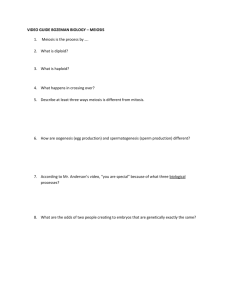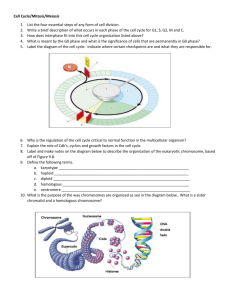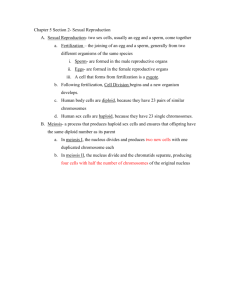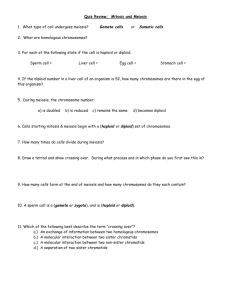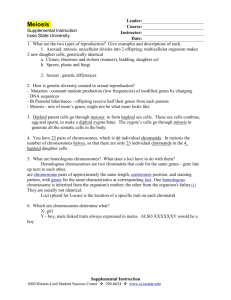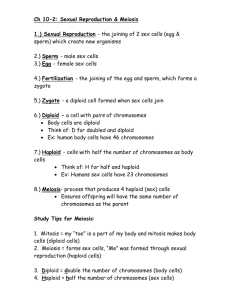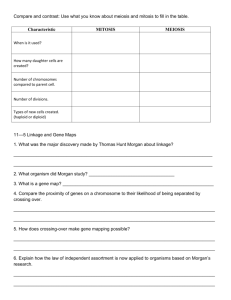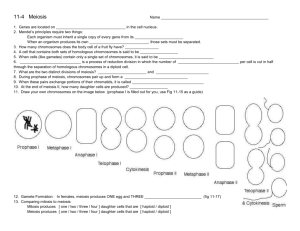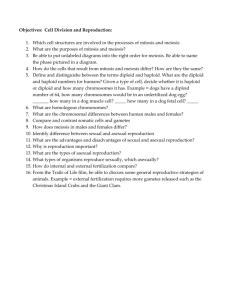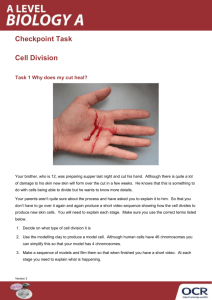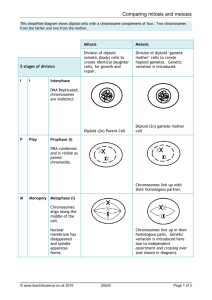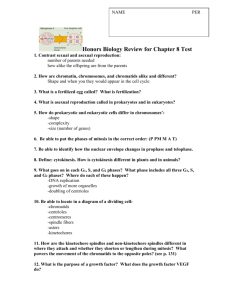Meiosis Review Worksheet
advertisement
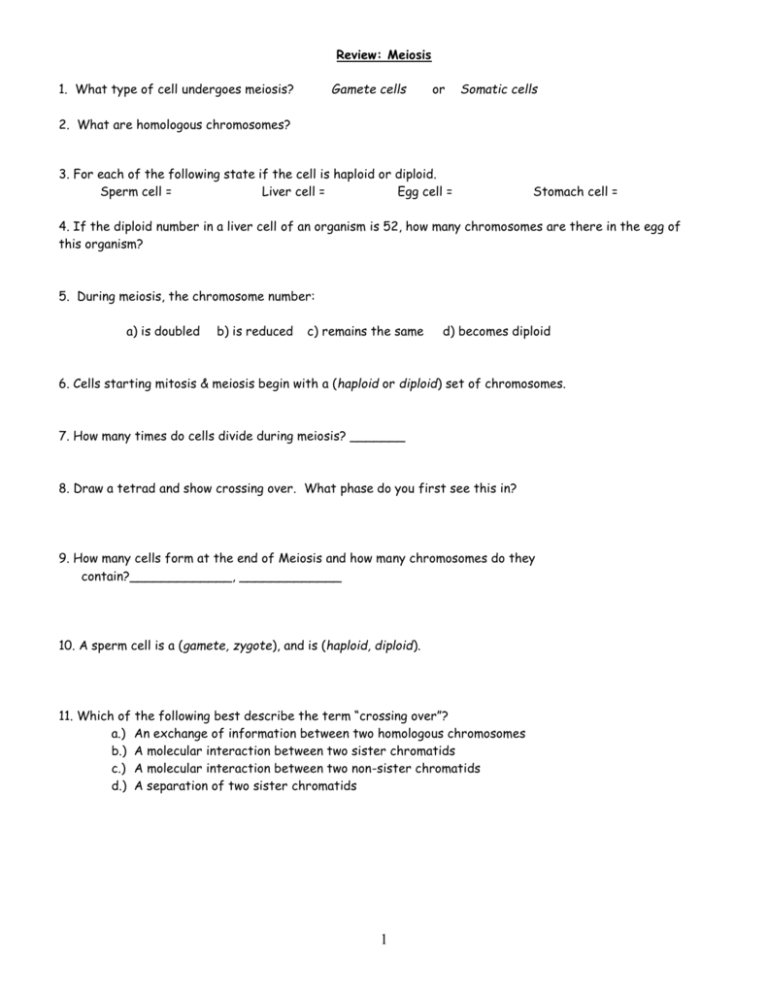
Review: Meiosis 1. What type of cell undergoes meiosis? Gamete cells or Somatic cells 2. What are homologous chromosomes? 3. For each of the following state if the cell is haploid or diploid. Sperm cell = Liver cell = Egg cell = Stomach cell = 4. If the diploid number in a liver cell of an organism is 52, how many chromosomes are there in the egg of this organism? 5. During meiosis, the chromosome number: a) is doubled b) is reduced c) remains the same d) becomes diploid 6. Cells starting mitosis & meiosis begin with a (haploid or diploid) set of chromosomes. 7. How many times do cells divide during meiosis? _______ 8. Draw a tetrad and show crossing over. What phase do you first see this in? 9. How many cells form at the end of Meiosis and how many chromosomes do they contain?_____________, _____________ 10. A sperm cell is a (gamete, zygote), and is (haploid, diploid). 11. Which of the following best describe the term “crossing over”? a.) An exchange of information between two homologous chromosomes b.) A molecular interaction between two sister chromatids c.) A molecular interaction between two non-sister chromatids d.) A separation of two sister chromatids 1 12. Which letter in Figure 2 represents meiosis? Why? Figure 2 13. Which letter in Figure 2 represents mitosis? Why? 14. Which letter in Figure 2 represents fertilization? Why? 15. When a sperm cell and an egg merge, they undergo the process of fertilization, and give rise to a (gamete, zygote), which is (haploid, diploid). 16. What is the ultimate goal/purpose of mitosis? 17. What is the difference between chromosomes, chromatids, and homologous chromosomes? You may draw a picture as your answer. 18. How are DNA and chromosomes related? 19. What is the difference between a haploid, diploid, and zygote? 20. How does Meiosis differ from Mitosis? 2
